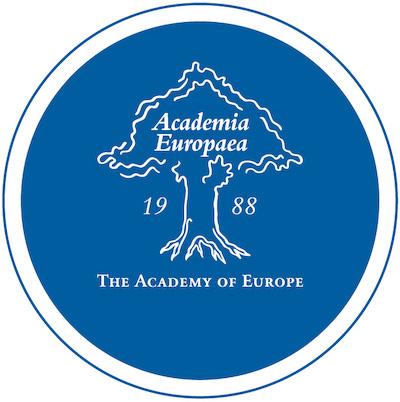« Une autre politique du monde ne reposant plus nécessairement sur la différence ou l’altérité, mais sur une certaine idée du semblable et de l’en-commun, est-elle possible ? »
– Achille Mbembe, Politiques de l’inimitié
The Minor Universality project aims to contribute to the debate on universality after Western universalism. Starting from the essential role narration plays in collective imaginaries, it seeks to understand how a new consciousness of universality is under way of being produced in contemporary social practices and cultural expressions such as oral transmissions and narrations of the self, literatures and archives, films and festivals, curatorial spaces and museums. Building on the importance of such concepts as concreteness, reparation, relation and translation, it wants to re-expand the material and medial turns to processes of experience, reflection and agency.
-
-
mehr Publications
Publications
-
The Project
mehr The Project -
YouTube Channel
mehr YouTube Channel
-
Team
mehr Team -
HKW Residencies
mehr HKW Residencies -
mehr Archive
Archive
-
News
Recently published: Open-Access Publication of "Universalism(e) & … Conversations" (de Gruyter, 2024)
This book confronts the history and legitimacy of Western Universalism. In the form of conversations, it documents thinking-in-process about how new forms of universality after hegemonic universalism can be thought and practised. Bringing into play their practices and theories, the interlocutors of Universalism(e) & … lay their own traces of a minor universality, situated in the troubling present of our times.
Conversations with: Arjun Appadurai, Leyla Dakhli, Souleymane Bachir Diagne, Giovanni Levi, Gisèle Sapiro, David Scott, Adania Shibli, Maria Stavrinaki
Part of the series: Beyond Universalism. Studies of the Contemporary, edited by Markus Messling
The book is open access, like most of the publications in the book series, and can be downloaded and freely distributed from the publisher's website, de Gruyter.
More on the book / Free download
The interview series on YouTube
22 May 2024 – Closing event of the ERC Project Minor Universality
In cooperation with the Käte Hamburger Centre for Cultural Practices of Reparation (CURE)

The ERC Project Minor Universality. Narrative World Productions After Western Universalism took up its work in September 2019 and will now be concluded with a day of discussions, presentations, and lectures with our esteemed guest and collaborator Prof David Scott (Columbia).
We will also be launching for the first time all books published until now in our series Beyond Universalism? Studies on the Contemporary (de Gruyter).
Scott has just published his new book Irreparable Evil. An Essay in Moral and Reparatory History, which makes significant contributions to the questions that concern the ERC project: the role of universal values in a world profoundly damaged by the historical injustices of Western nations, as Scott illustrates through the atrocities of colonialism and slavery. After a discussion of Scott's book and an exchange about the volume On Minor Universality, Hélène Thiérard, Maria-Anna Schiffers, Clément Ndé Fongang, Azyza Deiab and Jonas Tinius will present their respective research projects.
Organised by the Minor Universality project (ERC) in cooperation with the Käte Hamburger Centre for Cultural Practices of Reparation (CURE).
If you have any questions, feel free to contact the scientific coordinator of the ERC project Minor Universality Dr. Jonas Tinius (jonas.tinius(at)uni-saarland.de).
PI of ERC Minor Universality, Professor Markus Messling, has been elected as a member of the Academia Europea

Markus Messling, Full Professor of Romance Literatures and Comparative Literary and Cultural Studies and Director of the Käte Hamburger Centre for Cultural Practices of Reparation (CURE), was elected a full member of the Academia Europaea on 25 March 2024 for his "outstanding achievements as a researcher". Members of the Academy are elected by the Presidium of the Academy on the recommendation of the respective section and after an international review process conducted by the respective class. Mr Messling is a member of the "Literary and theatrical studies" section in the humanities class.
The Academia Europaea (Academy of Europe), based in Senate House at the University of London, was founded in 1988 on the initiative of the British Royal Society and other national academies in Europe. It is a learned society whose aim is to promote European research, advise governments and international organisations on scientific issues and promote interdisciplinary and international research. To this end, it maintains regional science centres in Barcelona, Bergen, Budapest, Cardiff, Munich, Tbilisi and Wroclaw. The Academia Europaea is the only academy of sciences with individual members from the Council of Europe member states and other countries around the world. Its members - including 83 Nobel Prize winners - are outstanding scientists and scholars who cover the entire spectrum of academic disciplines (www.ae-info.org).
The admission ceremony will take place at the annual meeting of the Academia Europaea, which will be held in Wroclaw from 26-28 November 2024.
Contact:
Anna Warum
Science Communication & Public Relations
Käte Hamburger Centre (CURE)
Phone: +49 (0)681 302-3372
anna.warum(at)khk.uni-saarland.de



